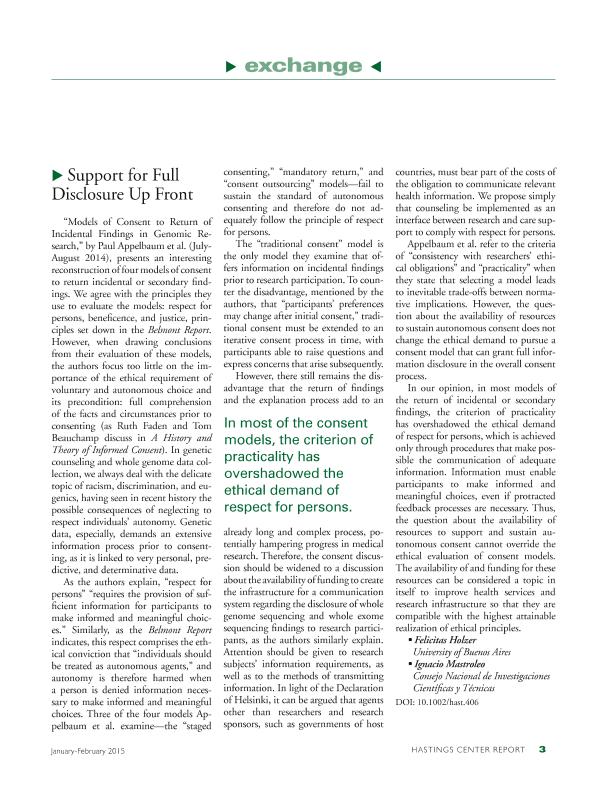Artículo
Support for full disclosure up front
Fecha de publicación:
01/2015
Editorial:
Hastings Center
Revista:
Hastings Center Report
ISSN:
0093-0334
Idioma:
Inglés
Tipo de recurso:
Artículo publicado
Clasificación temática:
Resumen
Models of Consent to Return of Incidental Findings in Genomic Research,” by Paul Appelbaum et al. (July‐August 2014), presents an interesting reconstruction of four models of consent to return incidental or secondary findings. We agree with the principles they use to evaluate the models: respect for persons, beneficence, and justice, principles set down in the Belmont Report. However, when drawing conclusions from their evaluation of these models, the authors focus too little on the importance of the ethical requirement of voluntary and autonomous choice and its precondition: full comprehension of the facts and circumstances prior to consenting (as Ruth Faden and Tom Beauchamp discuss in A History and Theory of Informed Consent). In genetic counseling and whole genome data collection, we always deal with the delicate topic of racism, discrimination, and eugenics, having seen in recent history the possible consequences of neglecting to respect individuals’ autonomy. Genetic data, especially, demands an extensive information process prior to consenting, as it is linked to very personal, predictive, and determinative data.
Archivos asociados
Licencia
Identificadores
Colecciones
Articulos(SEDE CENTRAL)
Articulos de SEDE CENTRAL
Articulos de SEDE CENTRAL
Citación
Holzer, Felicitas Sofia; Mastroleo, Ignacio Damian; Support for full disclosure up front; Hastings Center; Hastings Center Report; 45; 1; 1-2015; 1
Compartir
Altmétricas




